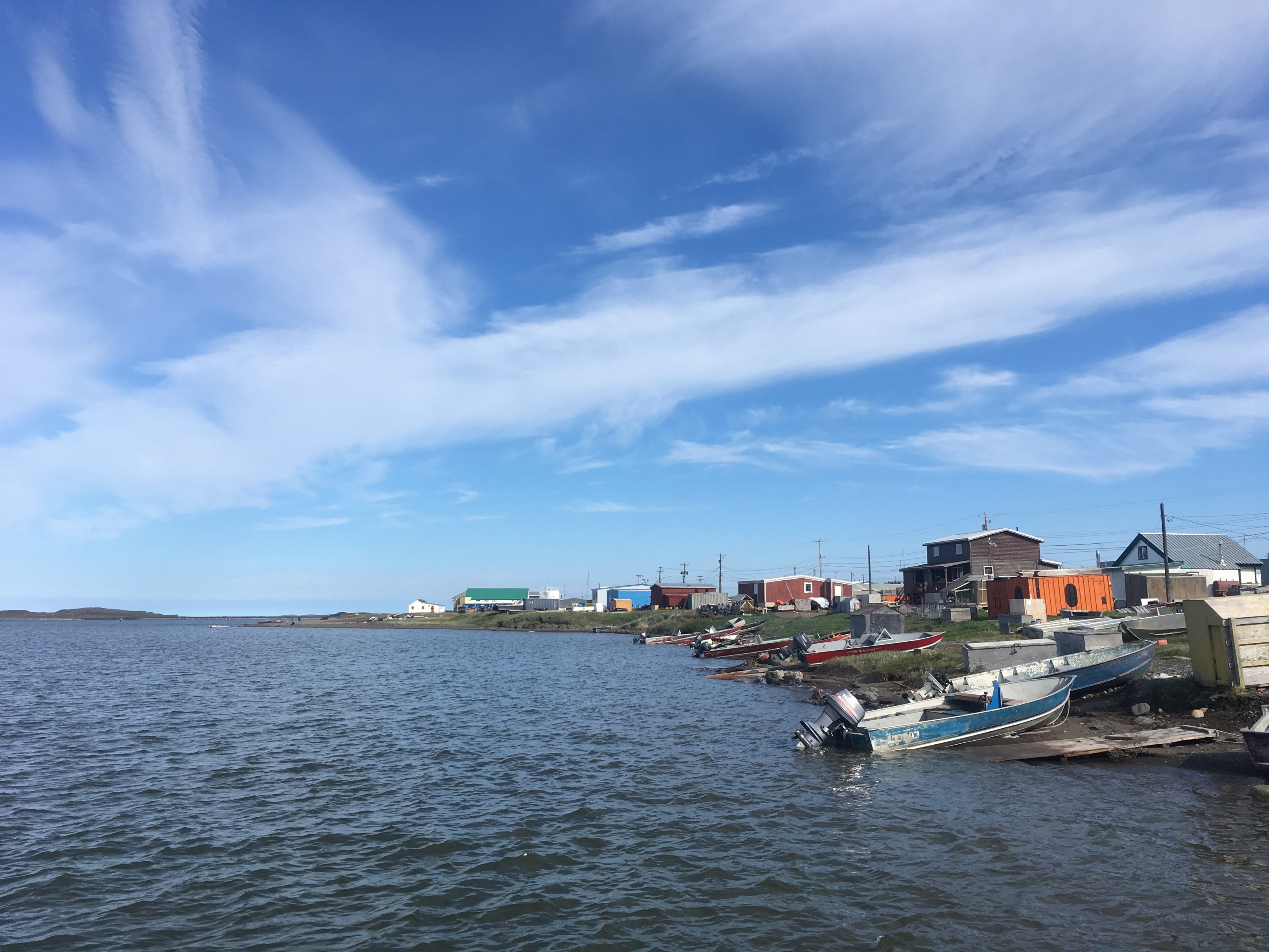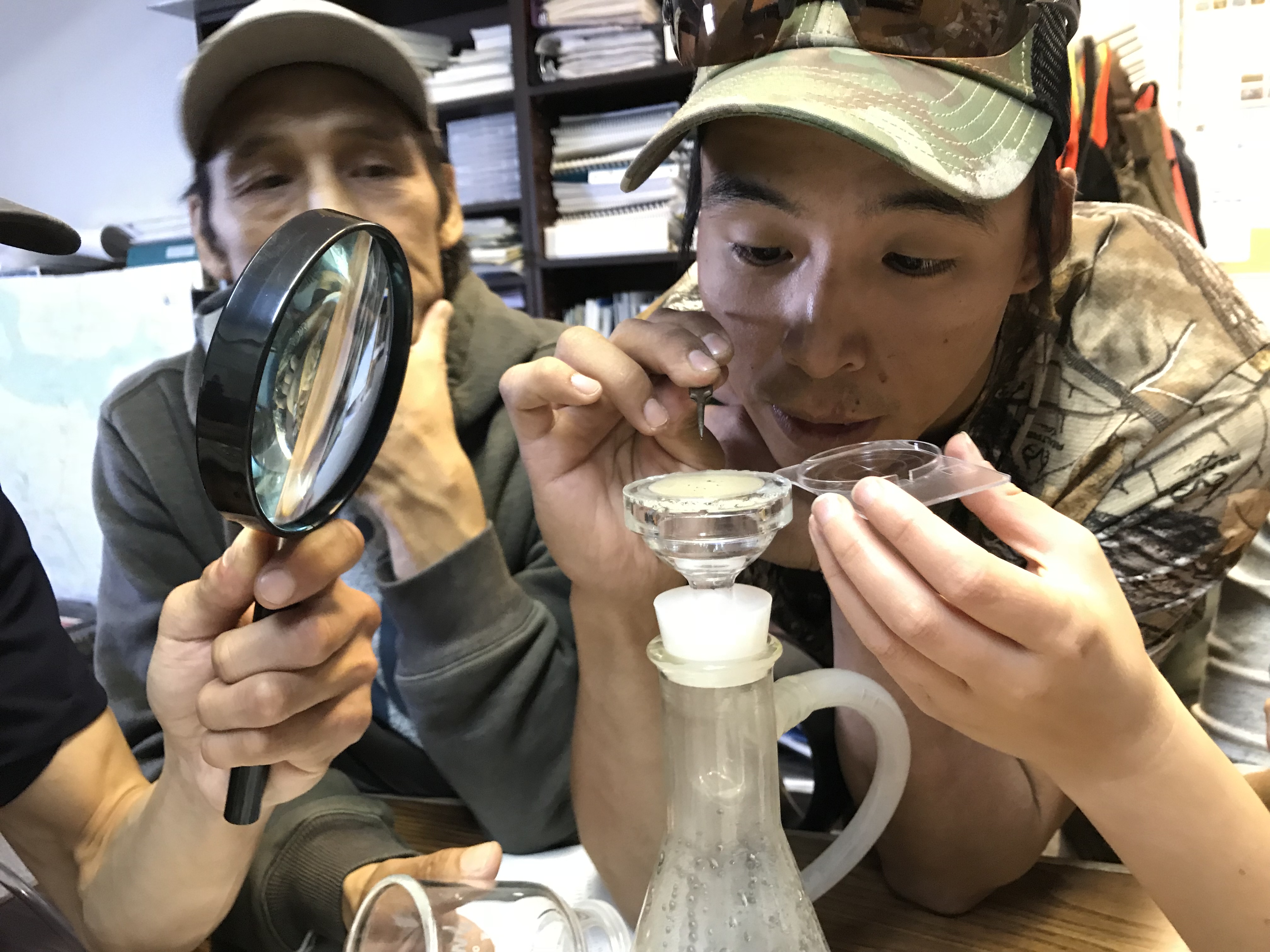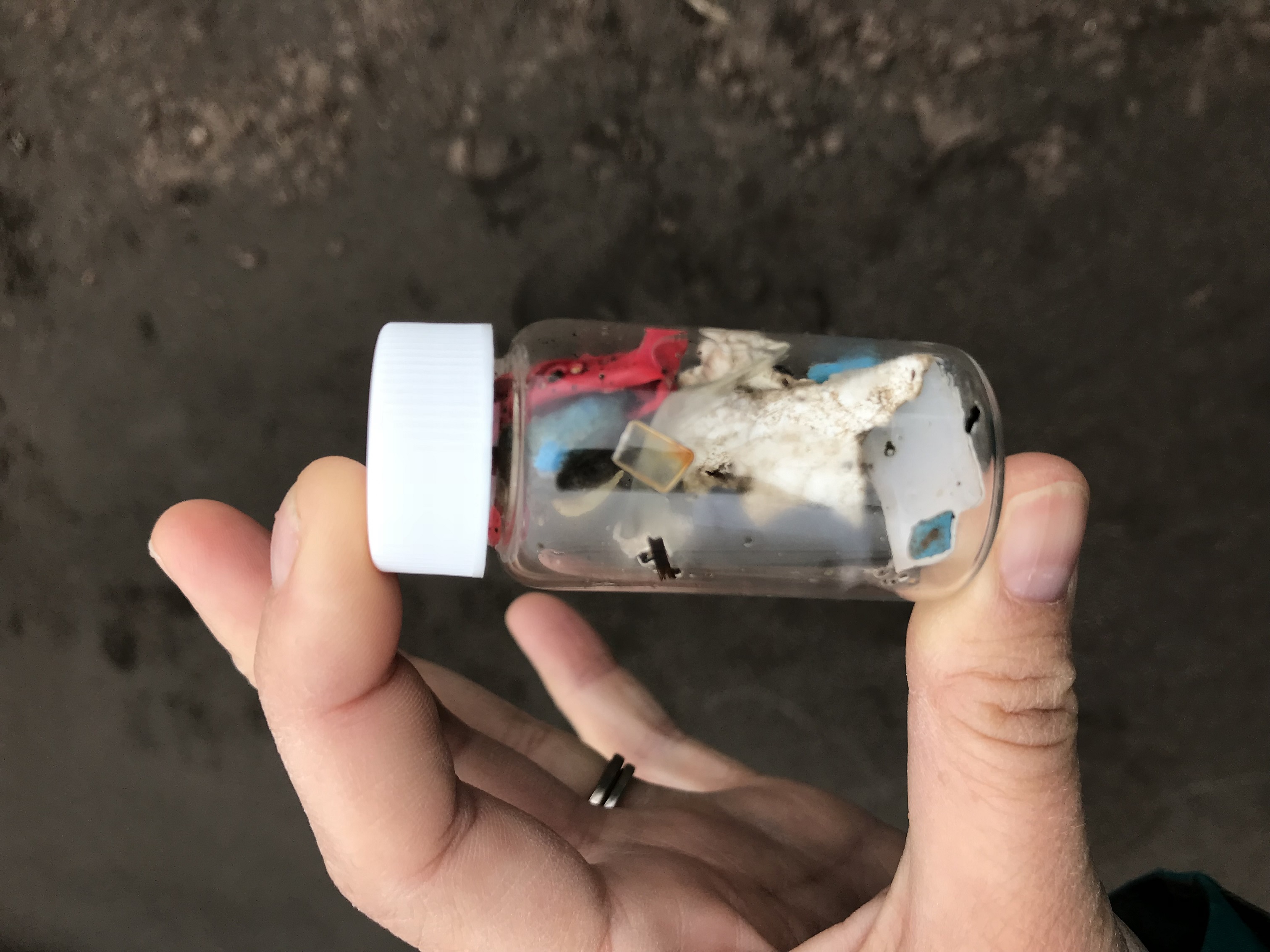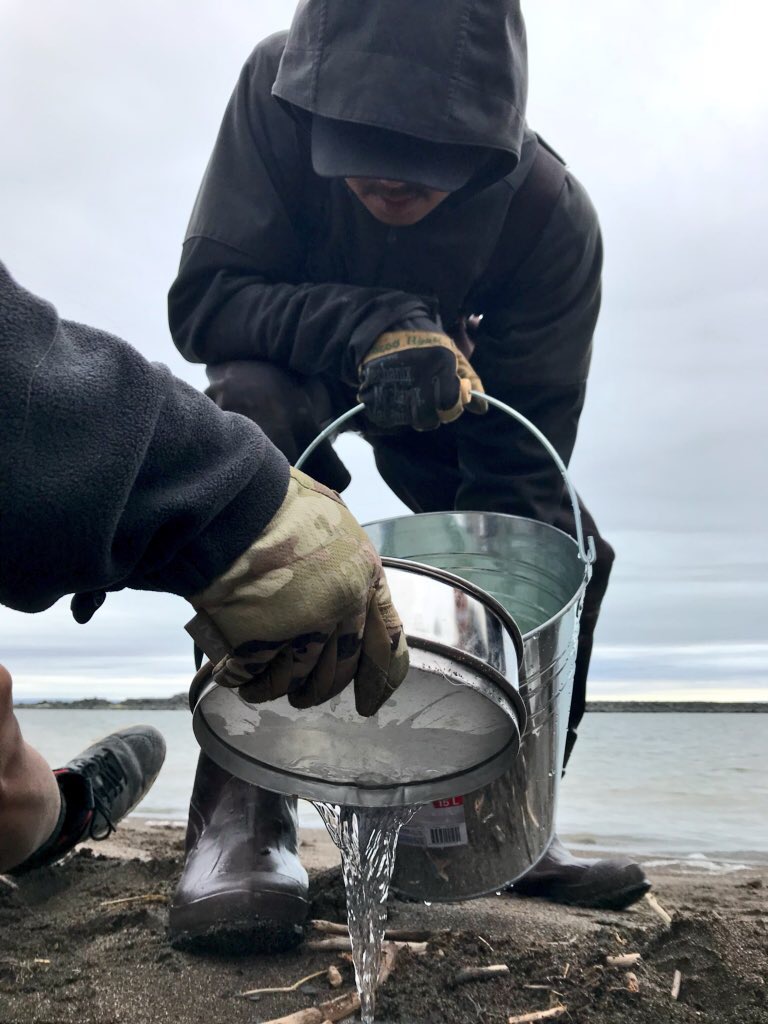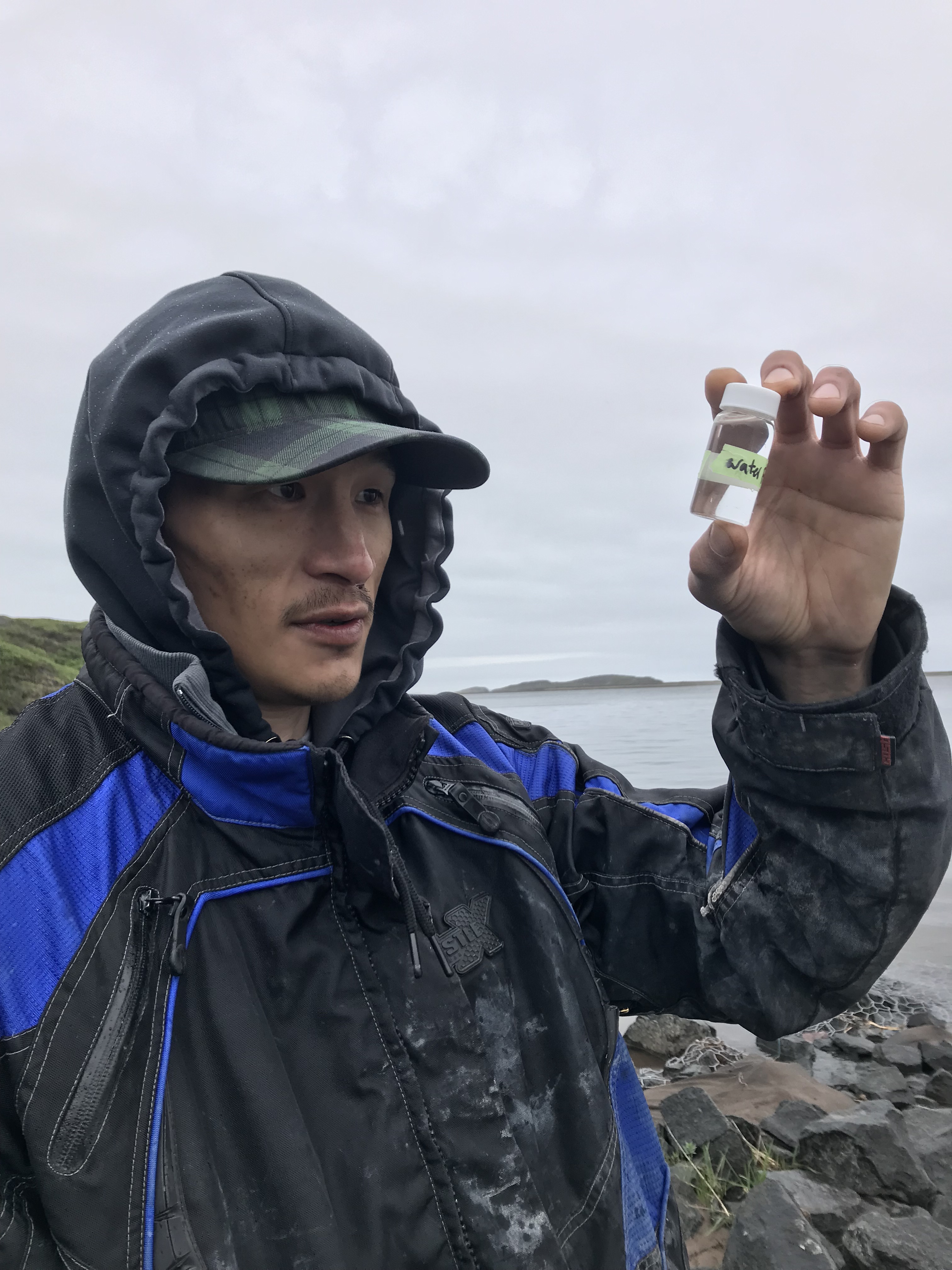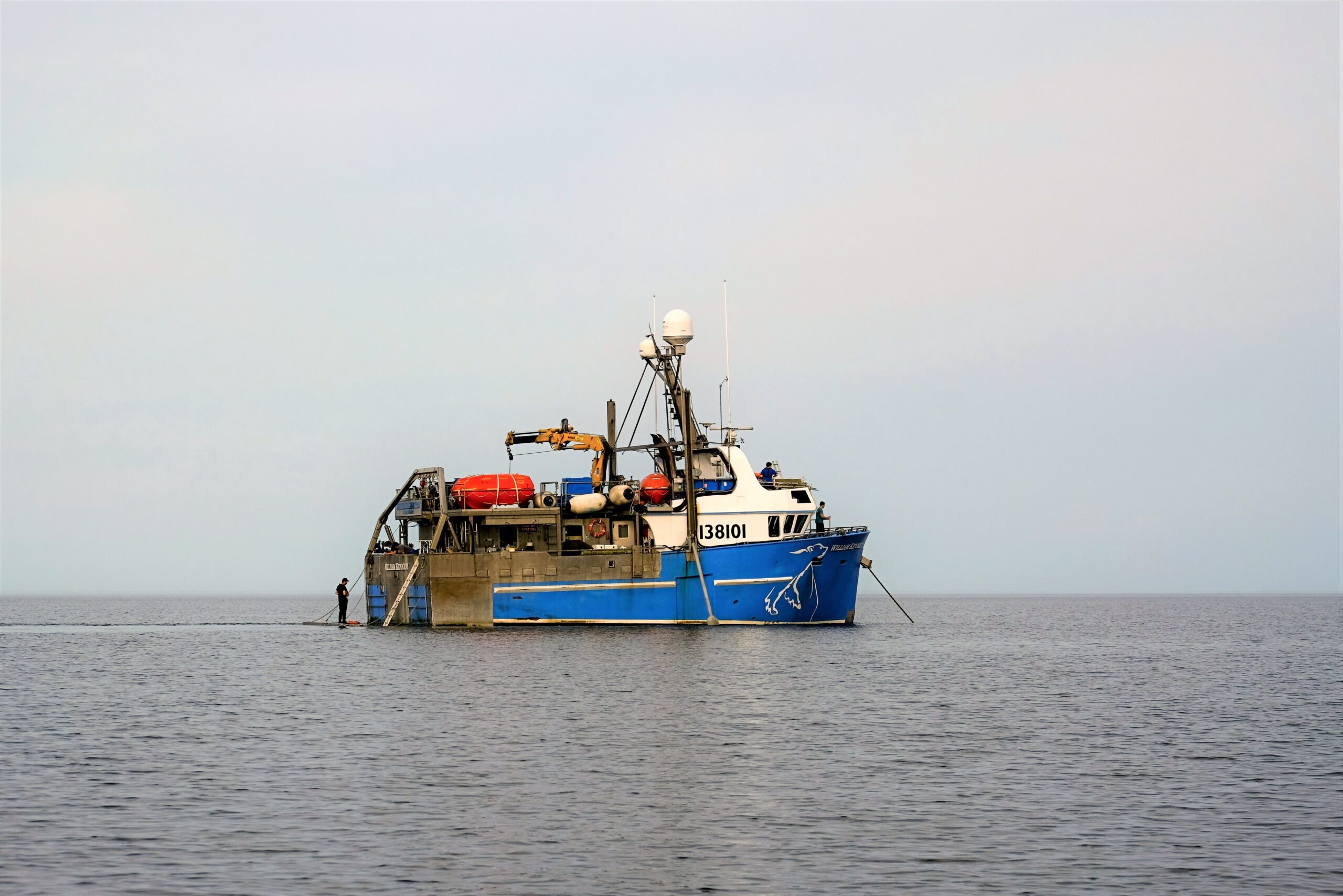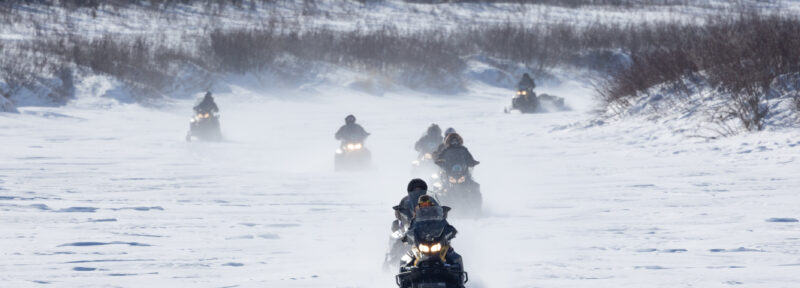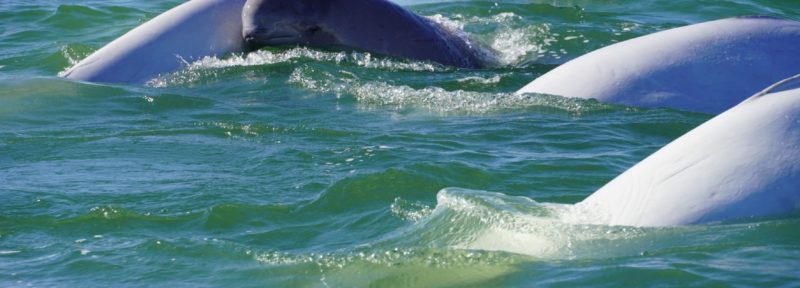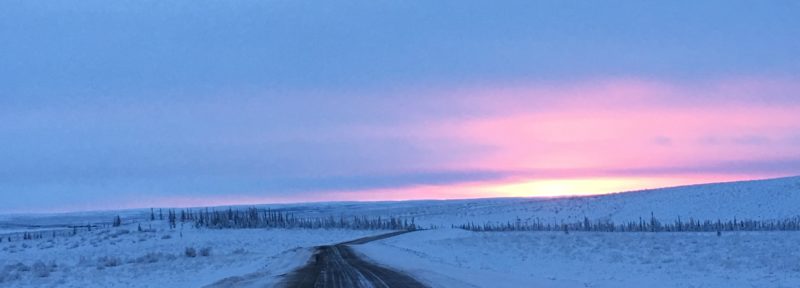Monitoring Microplastics in an Arctic Community
Kugluktuk is located on the Arctic Ocean at the mouth of the Coppermine River.
Credit: Olivia Mussells
When we landed in Kugluktuk, Nunavut in early July, the weather was warm yet sea ice still floated in the distance. We’d come to run a community workshop about microplastics sampling with our partners from Ikaarvik: Barriers to Bridges, a program run by Ocean Wise. Residents of Kugluktuk, located 600 kilometres north of Yellowknife on the mainland coast, are concerned about the health of the Coppermine River that flows into the Arctic Ocean next to the hamlet.
The first day of the workshop began with a discussion about microplastics as well as viewing samples under a microscope. The Ikaarvik program identifies local research priorities and trains northern youth to work with scientists. We led the workshop with Eric Solomon, director of Arctic programs at Ocean Wise and Rhiannon Moore, a graduate student from Ocean Wise. Based in Vancouver, B.C., that organization also runs a microplastics research lab and outreach program.
Participants of microplastics workshop in Kugluktuk, Nunavut filter water sample.
Credit: Kristin Westdal
Next, participants collected plastic from different places in the community and discussed types of plastics and where they might come from. Different locations produced a variety of kinds of plastic debris.
A sample of plastic debris collected on beach near Kugluktuk, Nunavut.
Credit: Kristin Westdal
We ended the day by sampling debris along a 100-metre stretch of beach in town. We found that Styrofoam and small bits of plastic were the most common types of plastic debris, followed by food wrappers and cigarette filters (which are actually made of plastic fibres.) Most of the plastics we collected likely originated in the community. But it’s possible that some came from far away, brought to these shores by wind and ocean currents and broken into small pieces over time.
Workshop participants filter water on beach in Kugluktuk, Nunavut.
Credit: Kristin Westdal
On the second day of the workshop, we focused our water sampling in and around the community. Rhiannon walked us through the process before we headed out to the three locations chosen by the participants. We sampled at the freight dock, the community camp site and near the community water intake on the Coppermine River. Three samples of different volumes of filtered water were taken at each location. We filtered one water sample from each site and looked at the results under the microscope. Although difficult to discern with a portable scope, we did find some fibers in the samples. The rest will be sent to the Oceanwise lab, where they will be filtered and analyzed to determine if they contain microplastics, and the content of those plastics.
One of the most interesting experiments we did was asking one of the participants to do a load of laundry, including fleece fabrics, and sample water from the rinse cycle. We filtered this sample and examined it under the microscope and discovered a multitude of plastic fibers.
Participant of microplastics workshop examines water sample from beach near Kugluktuk, Nunavut.
Credit: Kristin Westdal
What does this all mean? What can we do as individuals? Ocean plastics are an increasing problem around the world. Here in the Arctic, it is no different. Did you know that virtually every piece of plastic (except for plastic that was burned) still exists in some shape or form? The World Economic Forum and the Ellen MacArthur Foundation predict that by 2050 there will be more plastic than fish by weight in the world’s oceans. It seems daunting but we can each do our part. For example, in the United States alone 500 million plastic straws are used every day and are too small to be recycled. By not using straws, we can help reduce this waste.
On the research side, the hope is that training programs like this one in Kugluktuk will create a network of community researchers that can sample water on an annual basis. Those samples can be analyzed in a lab to get a better understanding of ocean microplastics in Arctic waters.
Our visit to Kugluktuk was rewarding. We saw and learned so much in only a few days. The time spend with the participants of the program gave us unique insights into the community and their environmental concerns, and we look forward to coming back and sharing results of the research.
Kristin Westdal is a marine biologist with Oceans North, and Olivia Mussells is a marine spatial analyst with the organization.

